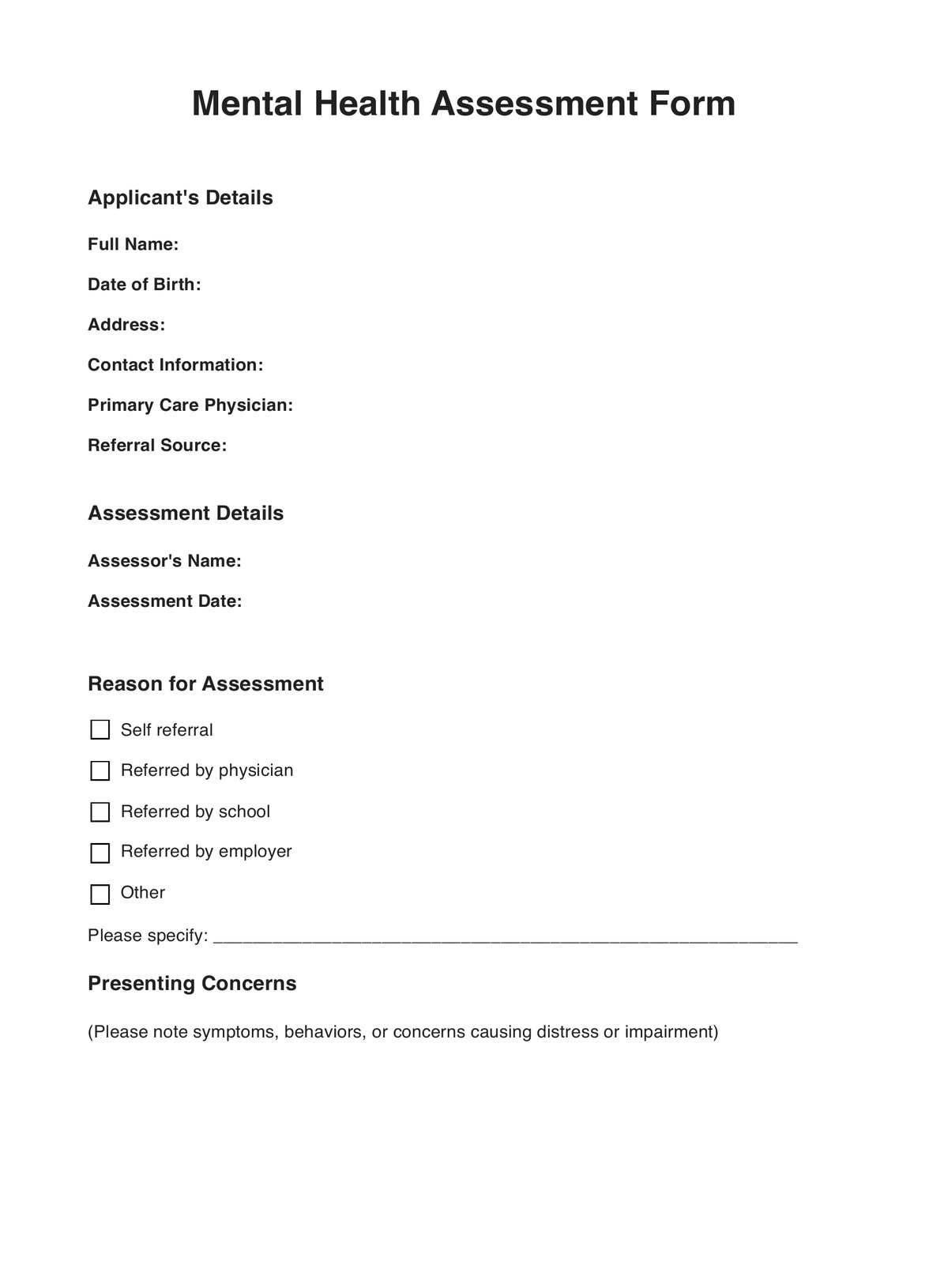Mental health professionals such as psychiatrists, psychologists, therapists, and counselors commonly use mental health scales in their practice.

Mental Health Scale
Discover the effectiveness of mental health scales. They provide valuable insights into mental well-being & are crucial assessment tools for health professionals.
Mental Health Scale Template
Commonly asked questions
Mental Health Scales are used for screening, diagnosing, and monitoring the progress of mental health conditions. Professionals also use them to measure the effectiveness of therapeutic interventions.
Mental Health Scales often come in questionnaires or tests administered to a patient. The responses are scored and interpreted based on established guidelines, which can then aid in diagnosis, treatment planning, or measuring treatment effectiveness.
EHR and practice management software
Get started for free
*No credit card required
Free
$0/usd
Unlimited clients
Telehealth
1GB of storage
Client portal text
Automated billing and online payments











